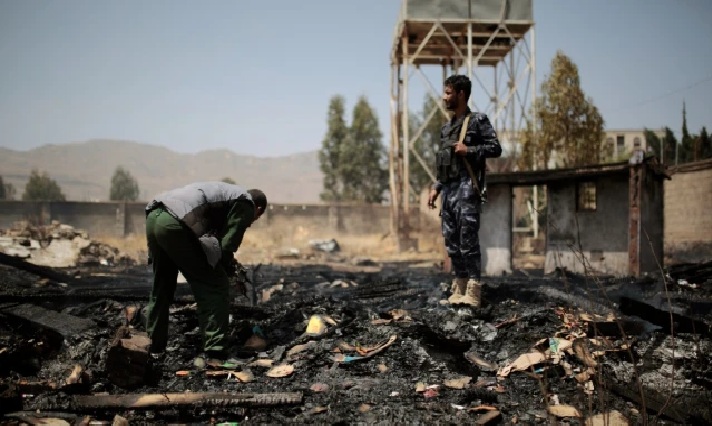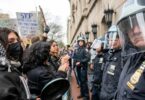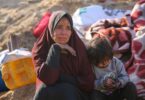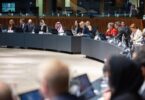Katherine Zimmerman
The House Committee on Foreign Affairs Subcommittee on the Middle East, North Africa and Global Counterterrorism recently held a hearing on the situation in Yemen, a chance to ask the right questions about what the U.S. is doing to advance its interests in the region. Yemen — a country that always seems to be in crisis but never topping the list of crises affecting American national security — rarely gets floor time in Congress. Mostly, discussion of Yemen surfaces in the context of Saudi Arabia’s role in the war, which has dragged on for eight years, and the U.S.-Saudi Arabia relationship. While the hearing was valuable generally, Congress missed the opportunity to push the Biden administration on its theory of success in Yemen.
Yemen’s conflict is complex and mostly out of the news, making it difficult to follow and even more difficult to evaluate the administration’s messaging on the conflict. Not to add that for most Americans, Yemen and its issues have again fallen off the map. Yemen’s location south of Saudi Arabia along the Bab al Mandab, a strategic maritime choke point, means the United States has a permanent interest in ensuring that developments within the country do not threaten maritime security or the stability of the Gulf. The playing out of the Iranian-Saudi conflict — Iran’s Islamic Revolutionary Guards Corps (IRGC) backs the Houthis and a Saudi-led coalition backs the internationally recognized Yemeni government — further complicates ending the civil war. An active al Qaeda group — the one that has tried to strike the U.S. multiple times in the past — remains present in Yemen’s southeast. And finally, the conflict exacerbates Yemen’s humanitarian crisis, one of the world’s worst.
The Biden administration has leaned heavily into diplomacy to help end Yemen’s war. Stopping the fighting to set conditions for the United Nations to negotiate a resolution have been key aims. U.S. efforts were key to the diplomatic breakthrough in April that yielded a UN-brokered truce, but that truce has only bought the Houthis time to further consolidate power in northeast Yemen. Moreover, while they have extracted concessions, the Houthis have yet to follow through on terms to which they agreed. Still, UN and U.S. officials continue to hope that they can translate ongoing talks into a viable resolution to the conflict. What no one has articulated is how negotiations today, when the Houthis have the upper hand, would lead to any semblance of an acceptable resolution for the Yemeni people and for U.S. interests.
Here are the questions that Congress should have asked of Special Envoy to Yemen Tim Lenderking and USAID’s Sarah Charles:
What is the prospect that a Yemeni-led political process today results in a settlement that protects U.S. interests in Yemen? U.S. policy is to support and enhance the UN-led effort to negotiate a resolution to the war in Yemen. It’s clear that the ceasefire provided much-needed relief to Yemenis across the country and that Yemenis want an end to the conflict. But the balance of power on the ground favors the Houthis, whose interests diverge from U.S. interests in Yemen, especially over Iranian influence in Yemen and the protection of basic civil liberties. If the most likely negotiated settlement locks in place conditions unacceptable to the U.S. — IRGC officers with long-range weaponry based in Yemen, for example — shouldn’t the U.S. seek ways to foster conditions that are more favorable to its interests?
What sources of leverage short of armed force does the U.S. hold over the Houthis to encourage them to negotiate in good faith? The Houthis remain empowered in Yemen, allowing them to make maximalist demands. They are militarily strong. Even should Iran stop supplying the Houthis with weapons — and there are no signs of this occurring — the Houthis have an enormous stockpile, which Iran continued to add to during the six-month truce period, that ensures they can carry on their fight. The Houthis are further emboldened by messaging from Congress against Saudi Arabia and mixed signals from the international community demanding they back down from their current positions but criticizing any resumption of fighting that might weaken the Houthis. Sanctions have had little impact, as have public exhortations for the Houthis to make necessary concessions for peace.
Who in the U.S. government is responsible for negotiating the release of U.S. citizens and current and former U.S. embassy employees still detained by the Houthis and what is being done to free these individuals? When the Houthis seized control of Yemen’s capital, Sana’a, they also detained Americans caught in the city along with Yemeni opposition figures, civil rights activists and journalists. Some were freed but others died from injuries sustained during torture sessions. The Houthis held Americans hostage to leverage the release of Houthis detained outside of Yemen, and still hold U.S. embassy staff they detained last year.
What actions could the U.S. take to prevent the Houthis from further reducing civil liberties and committing human rights violations? The Houthis’ efforts to transform Yemeni society under a fundamentalist Zaydi ideology accelerated after the Taliban returned to power in Afghanistan. They already had made significant changes to Yemen’s education system to indoctrinate, rather than educate, children. In the past year, the Houthis have taken measures to remove women from the public space, not only dimming prospects for Yemeni women’s futures but also hindering the female staff of NGOs from doing their jobs.
How is USAID balancing emergency assistance to Yemen with investing in Yemenis’ futures with long-term development work? The U.S. has been the largest single donor to Yemen for years, providing emergency humanitarian relief. But one of the most significant long-term threats to Yemenis is the weakening and near-collapse of state infrastructure and institutions necessary to provide basic services such as clean water and health care. Yes, Congress should ensure that other partners, especially Gulf states, are pulling their weight. But the value of U.S. assistance is not just in staving off imminent famine but also in rebuilding and strengthening the necessary infrastructure and institutions to prevent further deterioration in conditions.
These questions are the start to the hard conversation that the U.S. must have about whether the status quo in Yemen will yield an acceptable resolution to the Yemeni conflict.







